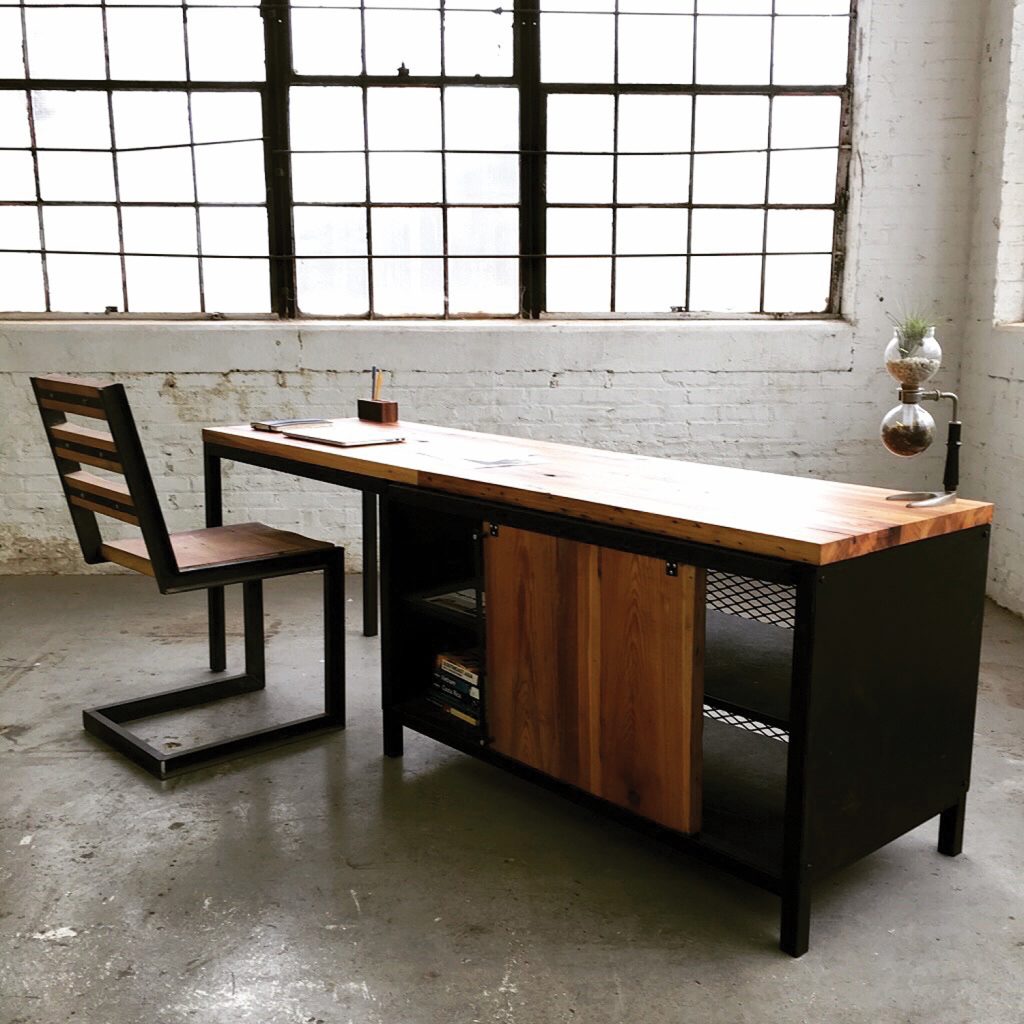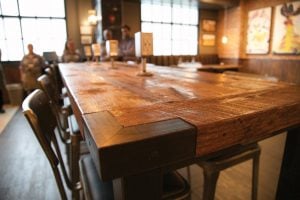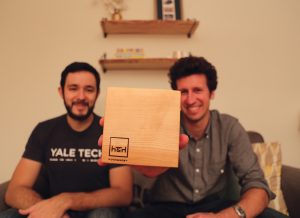
In a small Northeast Baltimore warehouse, Fred Kukelhaus, MS ’11, who studied environmental planning and management, shows off some pieces of furniture for a current commission, a corporate headquarters redesign in Bethesda.

The communal tables, made from thick American chestnut salvaged from a 19th-century mill floor, came from a shop near Providence; the 18-foot executive boardroom table was crafted from a giant black walnut tree recently felled by a storm in New Haven. A day earlier, Ben Young, Kukelhaus’ co-founder in the company of Hugo & Hoby, had trucked these down to Baltimore, where the pair is meeting with another fabrication partner, whose 10-foot dining tables, constructed from Baltimore row house timbers, lie stacked on a dolly.
Small metal plaques with H&H’s logo—which detail each piece’s material, its source, and the fabrication partner that built it—encapsulate the essence of the young company, which links commercial clients and highly skilled local artisans in furniture’s equivalent of food’s farm-to-table movement.
The company’s old-yet-hip guidelines—locally sourced, sustainable materials, local fabricators, durable and beautiful design, and close personal relationships with both clients and makers—were inherited from Kukelhaus’ and Young’s grandfathers, for whom the company is named. Hugo Kukelhaus’ and Hobart “Hoby” Young were carpenter-architect-inventors who passed on the fruits of their skills, and the skills themselves, to their descendants.

As students and would-be entrepreneurs who met at the Yale School of Management, Kukelhaus and Young became roommates through “happenstance.” After searching in vain for quality furniture at a price they could afford, they turned jointly to making their own, and the dream of H&H was born.
In its first three years, the business has burgeoned. Their next job is twice as big as the current one, and the one after that—refurnishing a law school dormitory—is half again the size of that.
“We’ve been lucky in a lot of ways,” Kukelhaus says. “We keep getting the next challenge that we can just about handle, and stretch ourselves and really kind of push forward, and then a new challenge will come up.”




